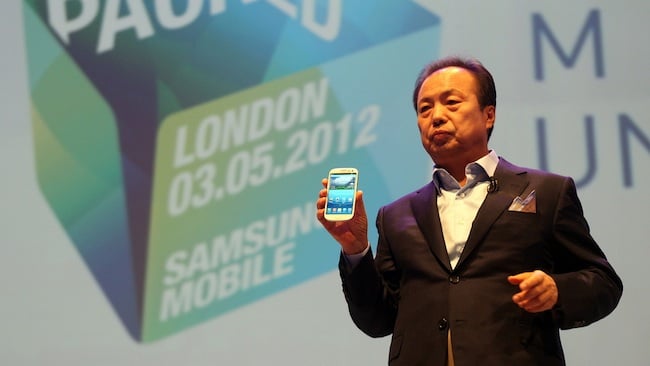It’s hard to believe that it’s been just four days since Samsung finally unveiled the Galaxy S III. Doesn’t it feel longer? All that hype for such a “meh” product. All that buzz. And for what? Views on Samsung’s latest and greatest smartphone aside, let’s talk about the company’s current position in the market. They’ve taken Nokia’s crown in terms of market share, they’re shipping more smartphones than Apple, and last week J.K. Shin, the President of Samsung’s Mobile Division, told MarketWatch that he thinks he’ll be able to move over 200 million smartphones this year. To put that number into some perspective, the bean counters at IDC recently said that 491.4 million smartphones were sold in 2011. That number will obviously increase in 2012. Let’s assume that it goes up by 60%, which is roughly the rate that smartphone unit sales increased between 2010 and 2011. That would mean that Samsung is aiming to make one out of every four smartphones sold this year.
Can they do it? Sure they can, but the bigger question is what will the company do in terms of software and services to compete against the other guys? Remember Bada, the Linux based smartphone OS that Samsung was working on? That’s dead. Remember Tizen, the Linux based OS that Nokia was working on in conjunction with Intel, but then abandoned, so Samsung came to support the project? That’s going nowhere. No one wants to admit this, but Samsung is to Google what Nokia is to Microsoft. Without Android, Samsung wouldn’t be where it is today. Will that story change over the coming months? Probably not, but it’s much harder to predict what’ll happen two to three years down the line.
As a reminder: Google will hold their annual I/O event next month. We’re likely going to hear some details about the future of Android. If you want to know about Samsung’s future, then you’ll want to make sure you also know about Google’s future.
